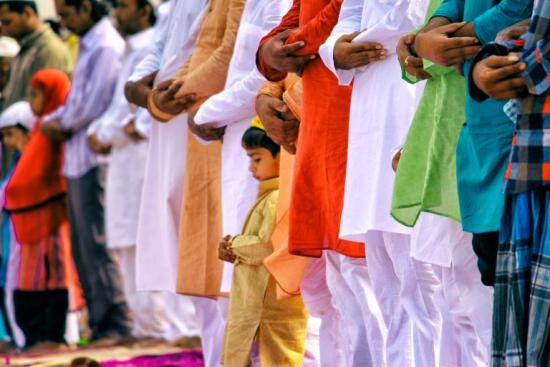
Alhamdulillah (praise and thanks be to God), we were given the chance to see another Ramadan. Even with the added stress that can come during this month due to fasting long hours, not getting enough sleep, etc., it’s hard not to feel the blessings of this special time of the year. There is a sense of community, a drive for self-improvement, and a renewal of our intentions and efforts to get closer to our Creator.
But with all of these positives, there is also a great deal of guilt for many people. It might be due to not being able to fast, not attending taraweeh, or not meeting certain Qur’an recitation goals. The shame and self-judgment can be heavy and even immobilizing. It can block us from seeing all the good we are doing, or simply remembering that Allah (swt) will judge each of us individually according to our unique situations. And even if someone else seems to have it better or worse than us during Ramadan, it may not necessarily be as good or bad as it seems. God will judge and reward each of us differently.
The same issues which stop a person from reaching their full potential (in terms of quantity of acts of worship) may be the reason why they actually receive extra reward—such as taking care of children or other family members, working long hours inside or outside of the home, or volunteering at the masjid rather than praying with the congregation.
There are also those who can’t fast for some or all of the month, and that may seem like a major disadvantage. But maybe a person who is not able to fast is being rewarded extra. Maybe they are being rewarded more for being patient than they would be for fasting. Maybe their strength of faith and not questioning the will of Allah (swt), is actually worth more to Allah than 30 strenuous days of fasting would be.
And of course, Ramadan is also the month in which many people come closer to Allah than ever before. Let’s not take away from this by making unfair comparisons. For example, maybe some of us were not reading the Qur’an at all outside of Ramadan, and now we’re making sure to read at least a few verses every day. It’s not fair for a person in this situation to compare themselves to someone who was used to reading the Qur’an on a daily basis and is now trying to complete a full recitation during this month.
Maybe some of us were not offering all 5 prayers before Ramadan, and now we are trying to pray all 5 on time every day and some taraweeh rakaat on weekends. It’s not right for this person to compare themselves to someone who was already in the habit of praying 5 times with sunnah prayers and is now standing for 20 rakaat of taraweeh every day as well.
Ramadan is about doing and being one’s personal best, and being sincere with ourselves and with Allah. It’s not a competition where the person who does the most acts of worship (of a certain type) is automatically better or rewarded more. Just as it’s important for us to check our intentions throughout the month (and the rest of the year), it’s also vital for us to practice self-compassion. If God is the Most Compassionate and the Most Merciful towards us, why shouldn’t we offer a little bit of that to ourselves as well?
May Allah (swt) make this the best Ramadan yet for all of us, and make it a month of spiritual growth and self-compassion. Ameen.
Follow Mostly Muslim on Facebook HERE.
Want your voice to be heard? JOIN OUR TEAM or send your guest submission to MostlyMuslim@gmail.com! Visit the “Contribute to MM” page for more details.
















